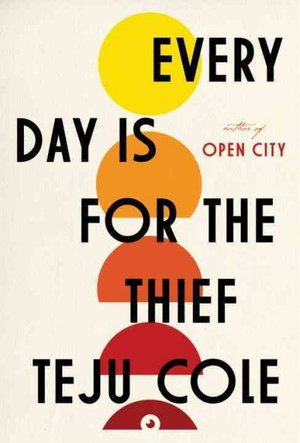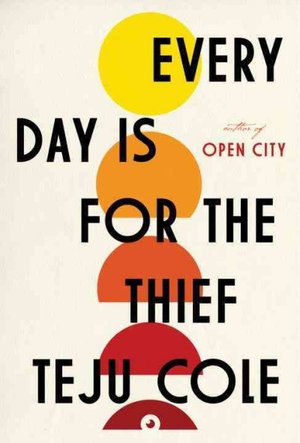Giving the tithe is a fundamental part of theology in Nigeria. Churches rely on faithful and committed giving to survive. In Nigeria, there are more churches than businesses and industries, certain pastors enjoy luxurious lifestyles at the expense of poor congregations. Yet, because the tithe is given to ‘God’, no one questions the excesses of indulgent men of God. In the UK, churches are regarded as charities and thus regulated. There are wealthy pastors as well in England, the comfort for believers is that laws keep them humble and diligent.

Tithing can be regarded as a form of worship. Strictly speaking, it is giving a tenth of one’s increase. Tithing is recognition and worship of the One Who created and actually owns all. Worshiping God in a prescribed manner has existed since the Garden of Eden. Cain and Abel knew the correct way to worship God, but one of them chose not to worship that way. Any Christian who loves the Lord should desire to give everything to Him. Sometimes, you wonder why give to God who owns the cattle on the thousand hills.
Does the God of heaven really need our tithes and offering? Does he punish us with disasters when we fail to tithe? Does he wait impatiently for the end of every month to get his hands on our money? Does he refuse to rebuke the devourer because we often do not tithe? Why are most people desperately poor even though they give faithfully and loyally? Must we tithe when we are just getting by? There are so many questions regarding the nature of God and tithing. Most preachers insist that those who give the tithe and remain poor remain so because they lack the faith to receive scriptural blessings. This is cruel theology and it must be far from the truth. Poverty is the direct result of an unproductive life. You can become unproductive for many reasons. For instance, you cannot work because of ill health, or you have not been able to get a job that pay well, or the income you bring, is unable to feed your wife and kids.
The idea that God depends on our tithes is just wrong for God is beyond tithe. He is a father and a friend. Jesus lived on the earth 33 years and not once did he pay the tithe nor did he make any teaching on the tithe. The only new commandment was that we should love God and our neighbour. When we love God, all we have becomes God and all of God’s becomes ours. Could the tithe therefore be a teaching of man to milk their congregation of the little they possess? Living in Nigeria is tough as it is. The writer will get emails about the tithe being in an Old Testament teaching and thus still relevant. Response? We might as well practice all the six hundred and thirteen laws of Moses.
Our Lord feeds the birds of the air and he knows the number of the hairs on our head. God takes care of all his children especially those who are not Christians and those who do not tithe. The point is do not feel pressurised to give your hard earned cash in any offering basket. He understands when you are unable to give. Its offensive when pastors hound us to give. There are churches where the emphasis is on getting to know and love God. In these churches, people are not forced to give. Yet, these churches are successful and people give cheerfully, wholeheartedly and they are blessed in return. God does not need our money, he is more concerned about us as individuals. He desires us and He would hope we love him too. If we gave on the basis of an admiration, love and respect for God, it is okay, but to give mechanically after being psychologically blackmailed to a church or to an unknown passive distant God is purely a waste of time.
Many Christians would disagree with me by citing testimonies of how they gave and God blessed them. This is good and consistent with the general principle that follows any giver be they Muslims, Hindus, Buddhists or Animists. These Christians would often blame those who suffers adversity by insisting he has issues and that he has not exercised enough faith in God. But if we were really honest, no one ever got rich by just praying or religiously giving tithes and offering. The Holy Ghost does not mint money, he gives ideas and would usually guide one in matters placed in his hands. The general rule of thumb is not to give offerings or tithes to the more successful churches as all that does is it enables the pastors to a lifestyle of Range Rovers and Gucci brands.
Wande had a bad year last year, she tithed faithfully every month, spoke in tongues, attended two extra services during the week in addition to the Sunday service, yet when she invested in a business in accordance to the ‘word of faith’ she got from her ‘Daddy in the Lord’, she lost every dime she invested. From speaking to her, the contention was that she was a faithful tither yet she had suffered so much by the devourer. The writer tried to make her see that the tithe had nothing to do with it, she simply made poor decisions and she suffered simply on both occasions heavily because she did not carry out due diligence. This idea that her ‘daddy in the Lord’ also prayed for her is nonsense. Sadly, many ‘daddies in the Lord’ have no business being in the Ministry. They are weak shepherds who need career counselling. She should have heard God for herself before embarking upon any investment. Besides, the idea that Christianity is a bed of roses is an evil doctrine from the pits of hell. Our Jesus was crucified, his disciples credited for spreading the sacred truth of the gospel were mostly killed for the truth they stood for. Paul was beheaded in Rome, Peter was crucified under Nero. John was put to death with a sword and John the Baptist was beheaded because Herodias daughter was instructed by her mother to request for his head. Bartholomew was hung on a tree with his head downwards and Stephen was stoned to death by a hedonistic group. We need to dissuade our minds that Christianity offers a life of no troubles. Our brethren in Jos, Kaduna and Kano will attest to the fact that there is a price for being a Christian. The idea that we can trade with God Almighty on the basis of our tithes is nasty. Preachers should teach a more liberal and balanced theology on tithing, the problem is, they don’t and again, we all know why.
Those who tithe their money faithfully need to remember that if tithing is to be done well, they need to also tithe our time, talent, our first born child etc. The act of tithing has made financial slaves of simple Christians. Perhaps, there is an argument to tithe as ministers of the Word need to profit from their ministry. If we must tithe or give to charity, we do well to pray to God before we part with our hard earned cash. God knows how to prosper us. God like a parent wants to live successful lives. He does not want for us to struggle and live like paupers. When we are able, we should give and when we are not able, we should not give. God is not a tax master who sits waiting for the end of the month for our tithe. A lot of the pastors are business men and we do well to educate them that the God we serve is beyond the tithe.
The image is from:http://benjaminconwaydotnet.files.wordpress.com.
Tundun Adeyemo
PS: I wrote this years ago and it was published in TELL Magazine.


